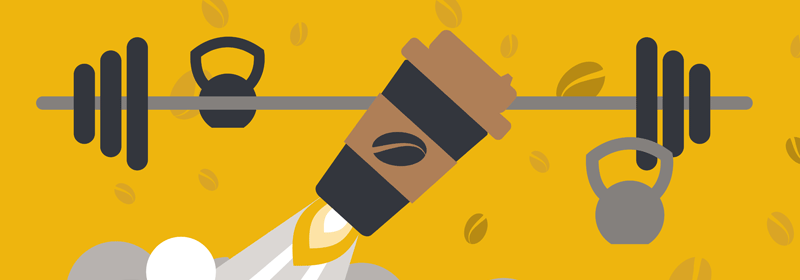Caffeine Before Exercise Helps You Burn Fat

Taking caffeine — or drinking strong coffee — half an hour before aerobic exercise can increase fat-burning, according to a new study published in the Journal of the International Society of Sports Nutrition.
The effects of the caffeine are higher if the exercise is done in the afternoon rather than in the morning, the authors wrote.
“The recommendation to exercise on an empty stomach in the morning to increase fat oxidation is commonplace,” Francisco Jose Amaro-Gahete, PhD, the lead author and a physiologist at the University of Granada, said in a statement.
“However, this recommendation may be lacking a scientific basis, as it is unknown whether this increase is due to exercising in the morning or due to going without food for a longer period of time,” he said.
As part of the study, 15 men (with an average age of 32) completed an exercise test four times at 7-day intervals. They took a 3 mg/kg dose (3 milligrams for every kilogram of their body weight) of green coffee bean powder, about the equivalent of a strong coffee, or a placebo dissolved in water. Each person completed the test under all four conditions in a random order and took the caffeine or placebo 30 minutes before each test at 8 a.m. and 5 p.m.
On test days, the participants took the caffeine or placebo and rested for 30 minutes before starting a cycling exercise. The research team standardized the conditions before each test — including the hours elapsed since the last meal, the consumption of stimulants, and physical exercise — and measured for the fat oxidation, maximum oxygen uptake, and exercise intensity.
Overall, the research team found that taking a dose of caffeine 30 minutes before an aerobic workout increased fat oxidation during exercise regardless of the time of day. At the same time, the rate of fat-burning was higher in the afternoon than in the morning for equal hours of fasting.
Compared to the placebo, caffeine increased fat oxidation by 10.7% in the morning and 29% in the afternoon. Caffeine also increased exercise intensity by 11% in the morning and 13% in the afternoon. The maximum oxygen uptake was also higher in the afternoon.
“Overall, these results suggest that a combination of acute caffeine intake and exercise at moderate intensity in the afternoon provides the best scenario for individuals seeking to increase whole-body fat oxidation during aerobic exercise,” the authors wrote.
This study was supported by the University of Granada Plan Propio de Investigación 2016—Excellence actions: Unit of Excellence on Exercise and Health and the Junta de Andalucía, Consejería de Conocimiento, Investigación y Universidades. The authors have disclosed no relevant financial relationships.
J Int Soc Sports Nutr. 2021;18:5. Full text
Source: Read Full Article